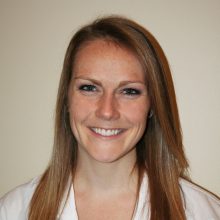Resources for Pharmacy
Pharmacy
NC AHEC plays a very active role in the pharmacy profession.
We provide educational opportunities for students and professionals, and AHEC faculty and staff constantly work to meet our goal of improving recruitment, retention, and distribution of pharmacy professionals.
NC AHEC pharmacy programs include support for community-based instruction of pharmacy students, pharmacy practitioners, pharmacy technicians, and other health care professionals. Pharmacy student experiential education is achieved through clinical rotations at ambulatory and institutional sites in the NC AHEC regions, where the students learn first-hand about the practice of pharmacy in community settings.
Each of the nine AHECs has one to four pharmacists who hold faculty appointments at UNC-Chapel Hill or Campbell University Schools of Pharmacy. Overall, the program boasts 22 AHEC pharmacy faculty and over 500 volunteer preceptors who teach pharmacy students from UNC-Chapel Hill and Campbell University.
NC AHEC PHARMACY PROGRAMS
- Serve practicing pharmacists, pharmacy technicians, undergraduate and graduate pharmacy students, residents and fellows, medical residents, physician extenders and physicians.
- Provide continuing education for health care professionals through collaborative program planning.
- Provide disease state management certificate programs for pharmacists looking to advance their practices.
- Identify and monitor pharmacist training sites and faculty preceptors.
- Facilitate career development and pharmacy practice advancement through regional advisory boards.
CONTINUING PHARMACY EDUCATION
Continuing pharmacy education is required by legislation as a condition for re-licensure. Increased involvement by practicing pharmacists has had an impact on the demand for accessible, high-quality continuing education. The AHECs have been, and will continue to be, responsive to the educational needs of practicing pharmacists in their regions. In collaboration with the UNC Eshelman School of Pharmacy, the AHECs have doubled their CE offerings over the last 10 years. AHEC pharmacy programs will continue to offer a comprehensive selection of educational programs and information services, including curricular offerings, certificate programs, and short-term experiential programs (e.g., mini-residencies).
PHARMACY EDUCATION CONSIDERATIONS
The first Doctor of Pharmacy class started in the Fall of 1996, eliminating the Bachelor of Science degree in pharmacy. A portion of each of the baccalaureate classes graduating in 1996, 1997, and 1998 were permitted to enroll in and complete the PharmD Program as a transition to this change.
The transition to the Doctor of Pharmacy degree, with its concomitant doubling the number of clerkships, could not have been accomplished without AHEC student training resources. It also demanded rapid, electronic access to drug therapy information for all clerkship preceptors and their students. Because most preceptors have computers with communications hardware and software, it is possible to link these faculty to an extensive offering of pharmacy information resources through the AHEC Digital Library.
AHEC PHARMACY EDUCATION PARTNERS:
UNC Eshelman School of Pharmacy
Campbell University College of Pharmacy & Health Sciences
North Carolina Association of Pharmacists



